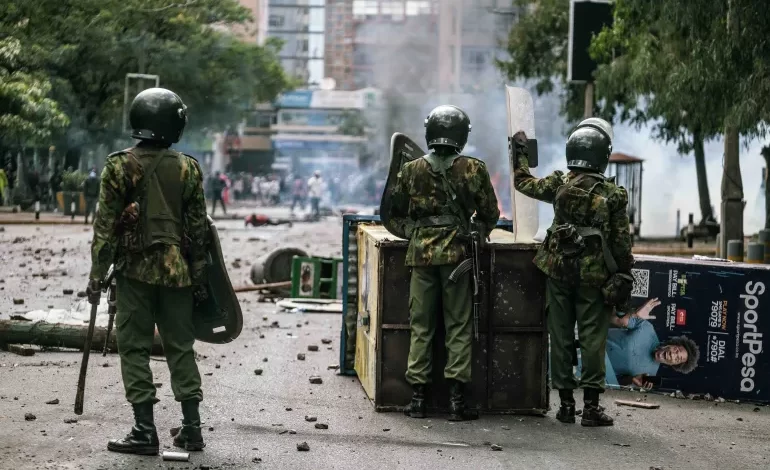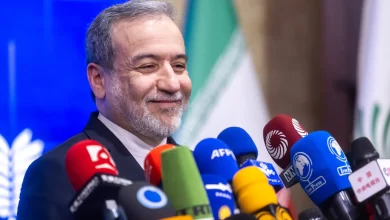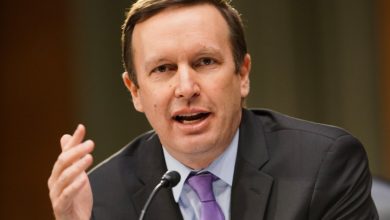Cutting Off the Internet: An African Tool for Suppressing Protests

By Habibullah Mayabi
At a time when the digital revolution dominates politics and the economy in most parts of the world, the African continent is experiencing waves of internet shutdowns, most of which are deliberate and coincide with elections and political demonstrations. Despite warnings from the United Nations High Commissioner for Human Rights about the dangers of internet shutdowns, considering it a major obstacle to efforts to bridge the digital divide, African governments see cutting the internet as an effective weapon to limit political protests and security tensions that accompany any election perceived by the opposition as fraudulent or lacking credibility.
Just as blocking the internet presents a bad image for democracy, it also causes significant damage to the economy and business sectors.
A Weapon Against Protests
According to data from the UN High Commissioner for Human Rights, between 2016 and 2021, there were 931 recorded instances of internet shutdowns in 74 countries around the world, most of which were in Africa and Asia. During this period, these shutdowns affected 52 electoral processes. UN data indicates that half of the documented shutdowns by civil society organizations over the past six years were implemented in the context of suppressing protests and demonstrations against electoral fraud and economic and social injustices.
In West Africa, governments often suspend internet services during events related to political demonstrations and protests. In February, Senegal’s Ministry of Communications blocked mobile internet services due to opposition protests against the decision to postpone the presidential elections issued by former President Macky Sall. The government in Dakar stated that the communications blackout was aimed at curbing riots in major cities.
In East Africa, Kenya joined the list of countries using internet shutdowns to end protests. The country has witnessed security disturbances since June due to the tax law proposed by President William Ruto. The government resorted to suspending the internet to impede communication and coordination among anti-government initiatives. Neighboring countries such as Burundi, Rwanda, Uganda, and Tanzania were affected by the internet suspension, resulting in multiple losses. However, the government was unable to quell the protests in the capital, Nairobi, until after cutting off communications, as opponents of government decisions stormed the parliament building and several administrative offices in different cities.
In Mauritania, located in North-West Africa, mobile internet services were cut off on July 2nd, coinciding with the announcement of presidential election results, which saw President Mohamed Ould Ghazouani win a second term, but this was not recognized by opposition candidate Biram Dah Abeid. Authorities cut off mobile internet services following widespread protests in Nouakchott and the southern city of Kaedi, where three people were killed in detention, and another citizen died after being transferred to a hospital.
Mauritania has experienced repeated internet shutdowns over the past five years, mostly in connection with election results or political and human rights demonstrations. In June 2019, authorities in Nouakchott cut off internet services following riots and violence in major cities due to the rejection of the presidential election results, which saw President Ould Ghazouani win his first term. In March 2023, the internet was blocked after four Salafi prisoners escaped from the civil prison in Nouakchott, having killed two prison guards. In May of the same year, internet services were cut off across Mauritania due to widespread chaos following the death of a citizen named Omar Joub in a police investigation center.
Across the African continent, internet access is often restricted during security and political events. Recently, Malawi, Zimbabwe, Congo, Gabon, Niger, and Chad joined the list of African countries that use internet shutdowns as a means of suppressing political protests. According to a report published by “The East African” website, Africa ranks second globally in terms of internet censorship, after Asia, which saw 620 internet shutdowns over the past decade. Internet shutdowns have affected at least 52 electoral processes between 2016 and 2021. A report by the United Nations High Commissioner for Human Rights indicates that in 2019 alone, 14 African countries resorted to disabling internet access due to political elections. The same report pointed out that communications censorship laws in Africa aim to silence anti-government voices.
Economic Losses
In 2021, 171 million internet users in Sub-Saharan Africa were affected by deliberate internet shutdowns, with economic losses estimated at $1.93 billion. In 2023, total losses reached approximately $1.74 billion due to government-imposed shutdowns. Ethiopia recorded economic losses of $1.5 billion in 2023 due to internet restrictions in conflict zones. In Kenya, where security tensions persist due to anti-government protests, economic damages are estimated at $13 million per hour of internet shutdown, while losses in Mauritania are estimated at $1.5 million per hour. In Senegal, where internet access was blocked at the beginning of this year, financial losses were estimated at about $2.5 million per hour.
A report by the World Bank indicates that internet shutdowns have dire consequences, affecting all economic sectors and undermining the flow of financial transfers. The internet blackout in Myanmar between February and December 2021 resulted in economic damages estimated at $2.8 billion. A study by the “Business & Human Rights Resource Centre” noted that internet shutdowns and restrictions on access to social media have become costly for the African economy, as large multinational companies rely on social networks to promote their products. The suspension of internet access also limits the movement of money and transactions due to the inability to transfer funds.
In 2022, deliberate internet shutdowns caused financial losses estimated at $24 billion globally. According to specialized reports, a 60-minute internet blackout worldwide could result in losses of up to £1.5 billion (the pound sterling is equivalent to $1.29). The “NetBlocks” organization says that internet shutdowns are usually costly for economies, causing billions of dollars in losses in the national production of countries that rely on digitization in the financial and business sectors.
Human Rights Violations
In June 2022, the United Nations High Commissioner for Human Rights issued a report on the legal implications of internet shutdowns, stating that internet shutdowns have become a tool to cover up human rights crimes and hinder their documentation. It added that shutdowns are often implemented by governments with the intention of deliberately obscuring human rights violations.
In Mali, the authorities isolated several conflict areas to keep them away from external communication, aiming to obscure the violations that the United Nations said its missions have documented many of. In August 2022, UN expert Ilion Tyne said that the violations committed by government-affiliated defense and security forces had become a cause for concern. Many African countries resort to internet shutdowns in cases of suppressing protesters, often accompanied by brutal violations. In June 2023, the Senegalese government cut off the internet amid severe repression of protests against the then-president, resulting in the deaths of nine civilians.
In 2020, the Economic Community of West African States (ECOWAS) Court of Justice issued rulings condemning internet shutdowns. The same court affirmed that the three-day internet blackout in Togo in September 2023 violated the right to freedom of expression. In 2021, several organizations from Nigeria filed a petition with the ECOWAS Court to issue an injunction ending the ban on the Twitter platform (now X).
The United Nations High Commissioner for Human Rights recommended in its 2022 report on the implications of internet shutdowns that governments refrain from using the internet as a tool for suppressing protesters. It considered that these actions are inconsistent with efforts to bridge the digital divide and the prospects for economic and social development. The report warned against the continued use of internet shutdowns, as it limits people’s ability to access information and participate in decisions and discussions that concern their lives and the reality of their countries.



